Are you tired of the constant noise disruptions in your living space? It can be incredibly frustrating when your peace is interrupted by loud noises, especially when you're simply trying to relax or get a good night's sleep. Writing a letter to your tenant about noise complaints can be an effective way to address the issue without causing unnecessary conflict. If you're looking for a template to get started, keep reading for tips on how to communicate your concerns clearly and respectfully.
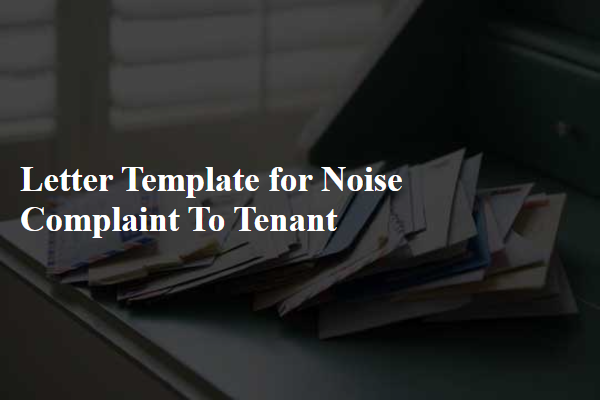
Clear identification of the parties involved (tenant and landlord/property manager).
Noise disturbances can significantly disrupt the peace in residential settings, particularly in multifamily dwellings. In properties like apartment complexes or condominiums, excessive noise may come from various sources, including loud music, barking dogs, or late-night gatherings. These disturbances can lead to complaints from affected tenants, potentially reaching property management teams or landlords responsible for maintaining a harmonious living environment. For instance, noise levels exceeding 55 decibels during nighttime hours can violate local noise ordinances, prompting the need for formal communication regarding the issue. Addressing this situation requires clear identification of both the tenant causing the disturbance and the landlord or property manager overseeing the property. Open lines of communication between these parties are crucial for resolving the issue amicably and restoring peace within the community.
Detailed description of noise issue (specific times, duration, and type of noise).
Excessive noise disturbances from the upper apartment has been a recurring issue, particularly noted between the hours of 10 PM and 2 AM on weekdays. This disruption primarily involves loud music accompanied by heavy bass vibrations and frequent thumping sounds, presumably from jumping or moving furniture. The duration of these disturbances often spans two to three hours each night, significantly impacting sleep quality and overall peace in the shared living space. Several residents in the vicinity have expressed similar concerns regarding this issue, indicating a pattern that affects the well-being of the community. A conducive living environment is essential for all tenants, and addressing this matter promptly would benefit everyone involved.
Reference to lease agreement or local noise regulations.
Persistent noise disturbances, such as loud music or excessive talking, can violate the lease agreement terms and local noise regulations, typically set for residential properties to ensure a peaceful living environment. In many municipalities, such as New York City, noise levels must remain below 55 decibels during the day and 45 decibels at night. Continuous violations can lead to potential penalties or eviction processes, as maintaining community standards is crucial for all tenants. Failure to adhere to these regulations may require mediation or further action to ensure compliance and restore tranquility in the living space.
Request for resolution (specific actions or changes needed).
Persistent noise disturbances from neighboring apartments can disrupt the peaceful atmosphere in residential living spaces. Excessive volumes, especially during late-night hours (beyond 10 PM), can escalate tension among tenants in multi-unit buildings. Specific actions, such as reducing loud music or controlling noisy gatherings, are necessary to maintain a harmonious living environment. Implementing designated quiet hours and utilizing soundproofing measures (like carpets or wall panels) can significantly improve comfort for all residents. Additionally, communication among tenants about acceptable noise levels could foster a respectful community, ensuring everyone's right to a peaceful home is upheld.
Contact information for further discussion or clarification.
Excessive noise from neighboring tenants, particularly loud music or late-night gatherings, can lead to significant disturbances in residential spaces such as apartments or condominiums. Properties located in urban areas like New York City or Los Angeles often experience heightened noise levels, particularly in densely populated neighborhoods. Common complaints include disruptions that occur after 10 PM, potentially violating local noise ordinances. For thorough resolution, effective communication details--such as the management's email or phone number--must be provided, enabling tenants to discuss specific incidents or seek clarification regarding noise policies. This dialogue can foster community harmony within shared living environments subject to the complexities of urban life.
Letter Template For Noise Complaint To Tenant Samples
Letter template of noise complaint regarding excessive loud music to tenant.
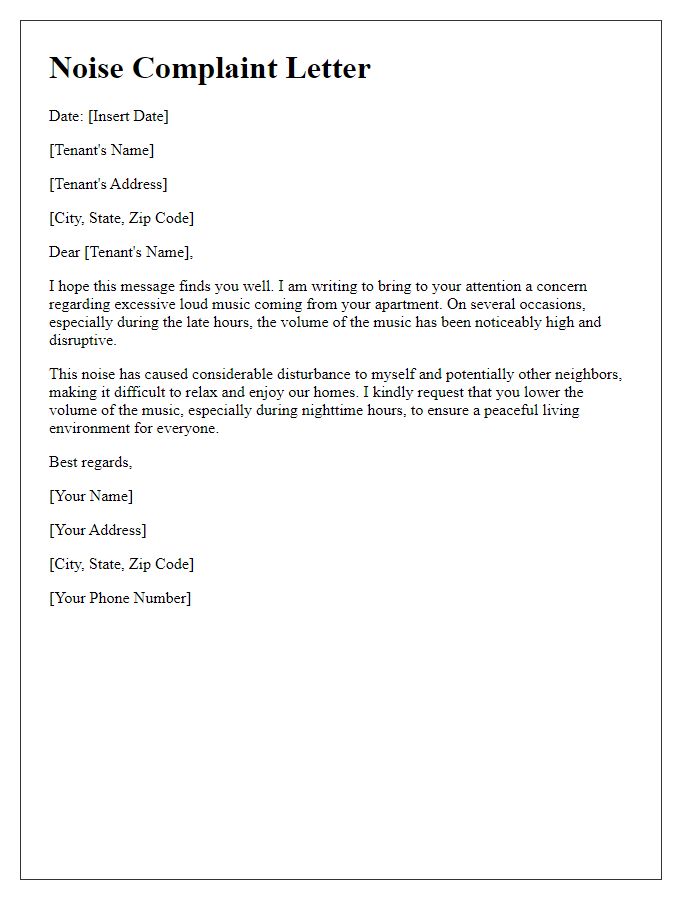
Letter template of noise complaint about persistent barking dogs to tenant.
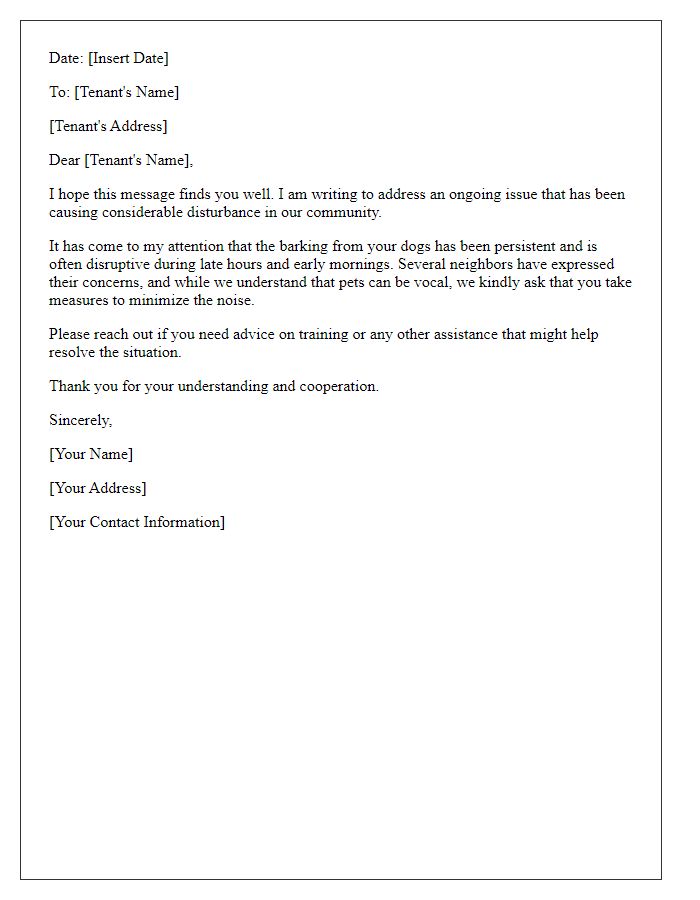
Letter template of noise complaint concerning late-night parties to tenant.
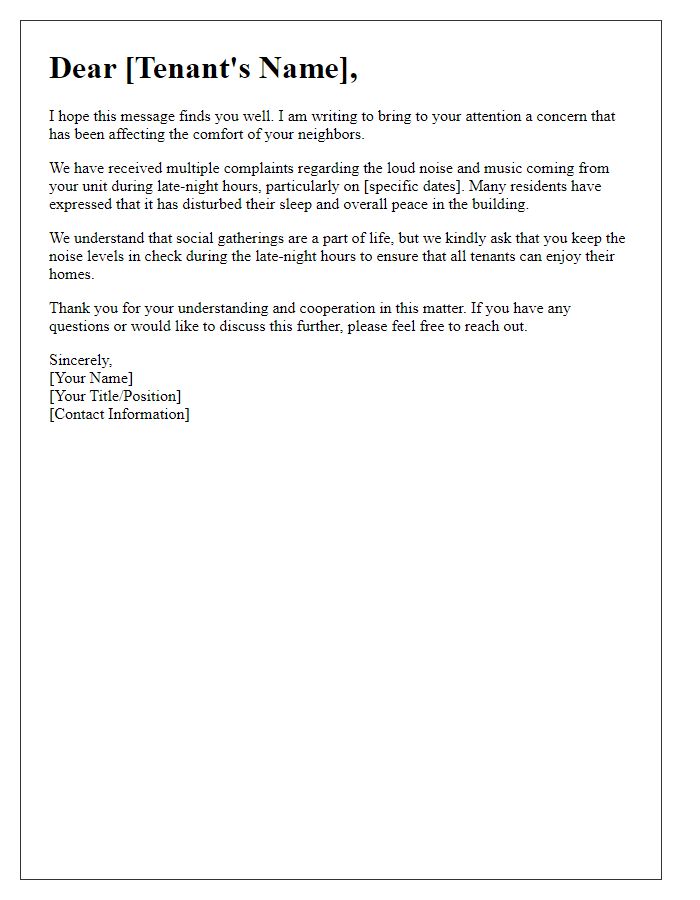
Letter template of noise complaint due to construction work during non-permissible hours to tenant.
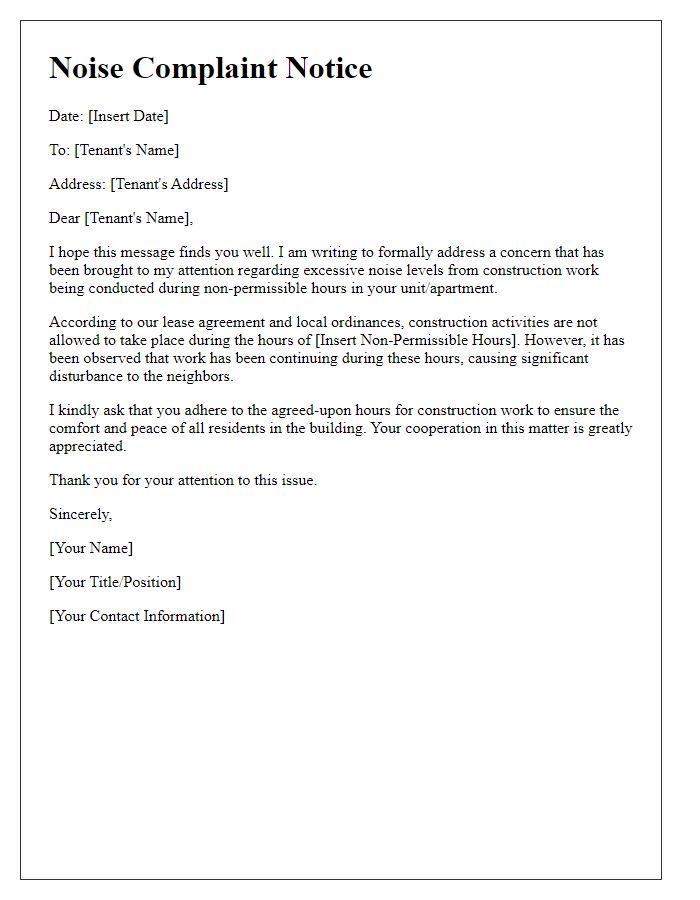
Letter template of noise complaint related to frequent loud arguments to tenant.
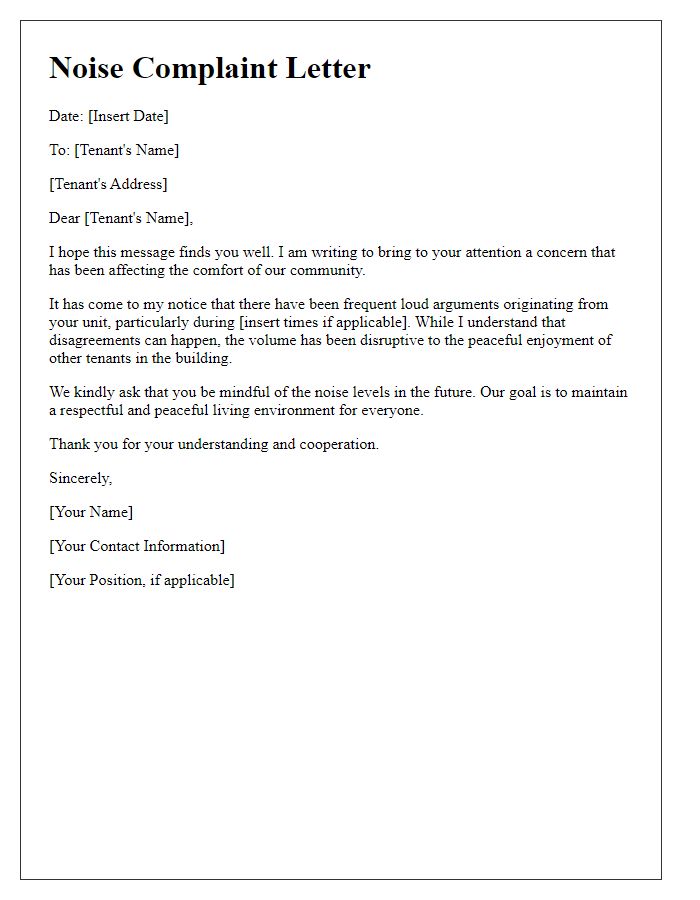
Letter template of noise complaint regarding heavy foot traffic in the building to tenant.
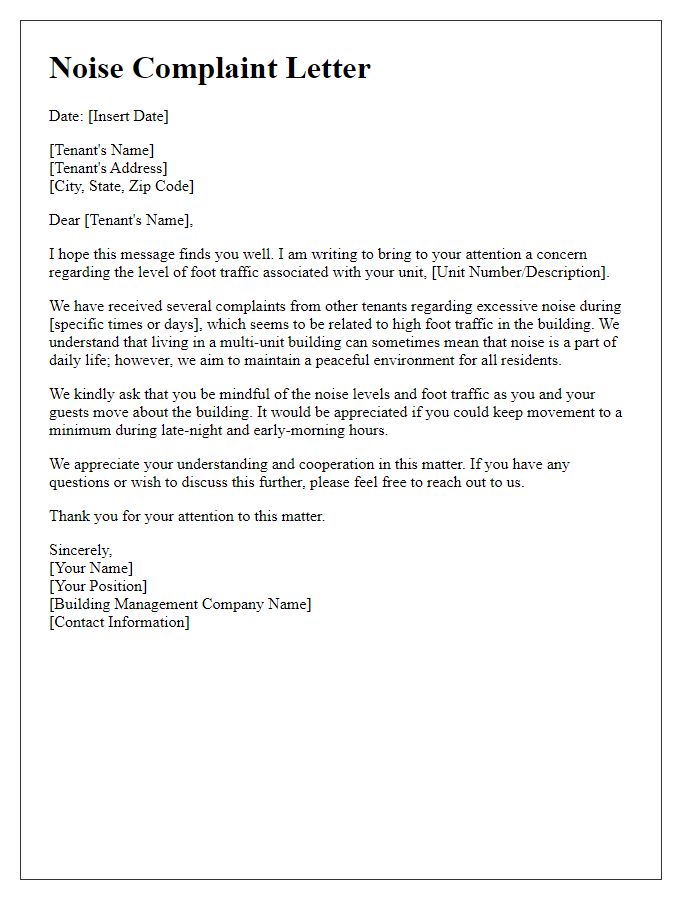
Letter template of noise complaint about loud appliances and machinery to tenant.
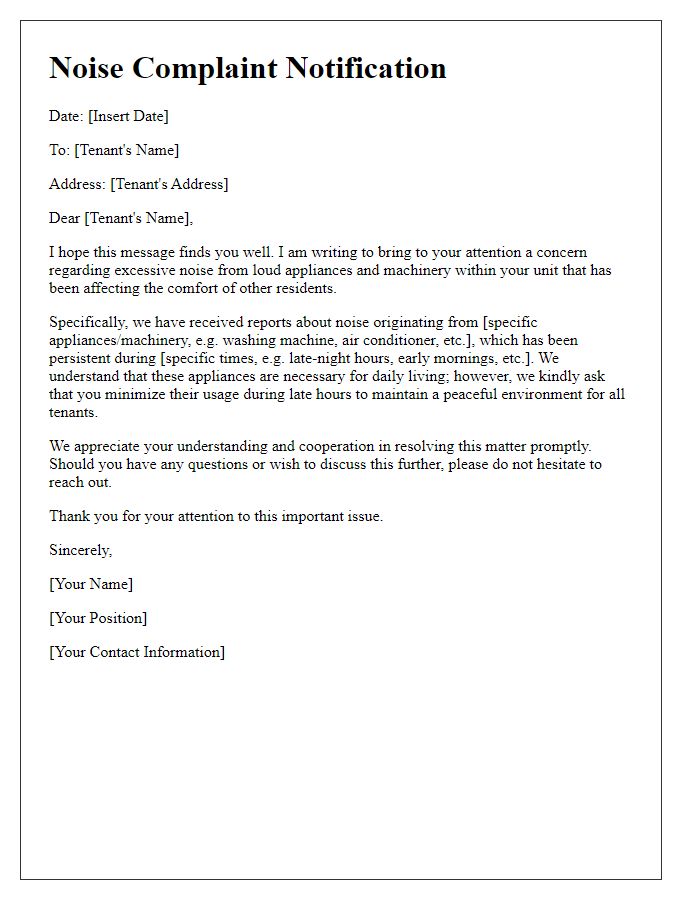
Letter template of noise complaint involving disruptive gatherings in shared spaces to tenant.
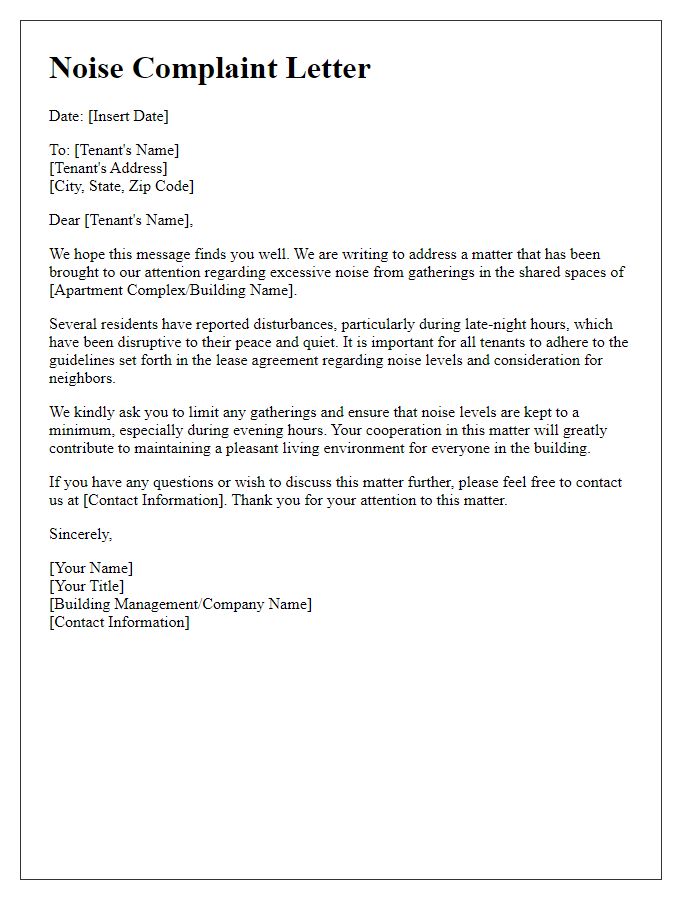
Letter template of noise complaint pointing out inconsiderate gaming noise to tenant.
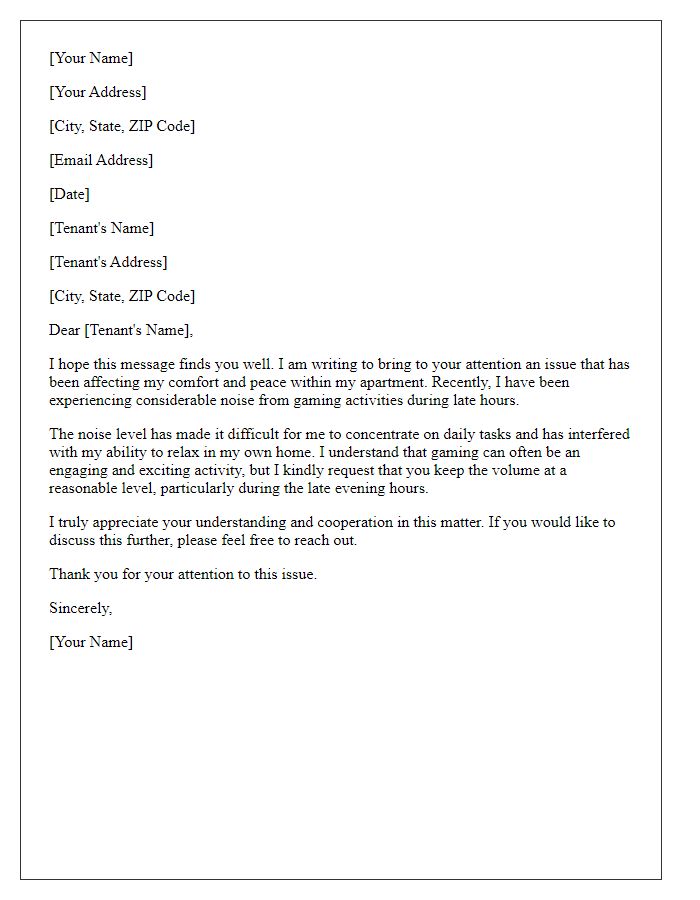

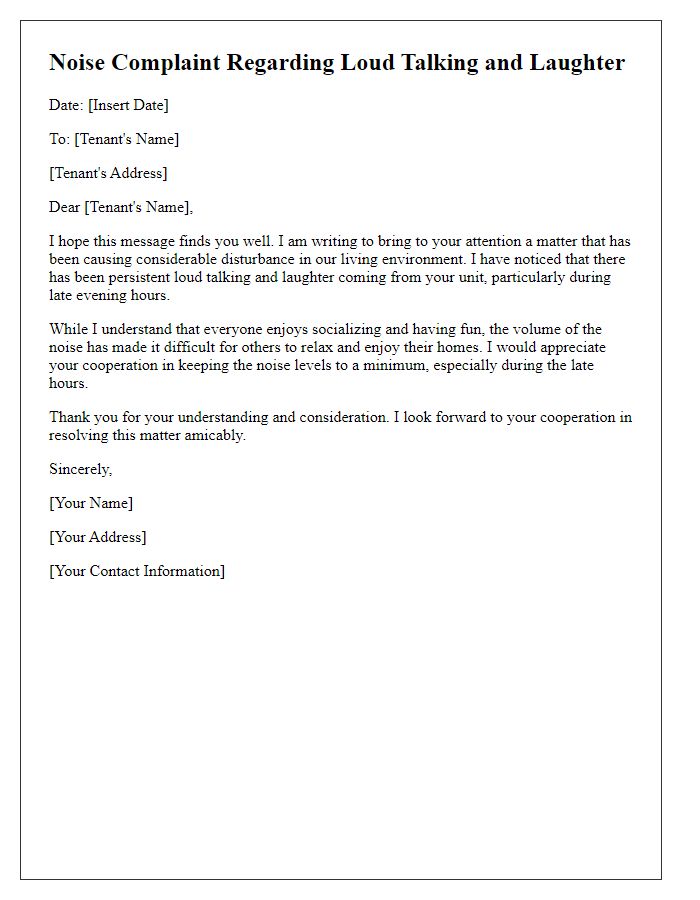

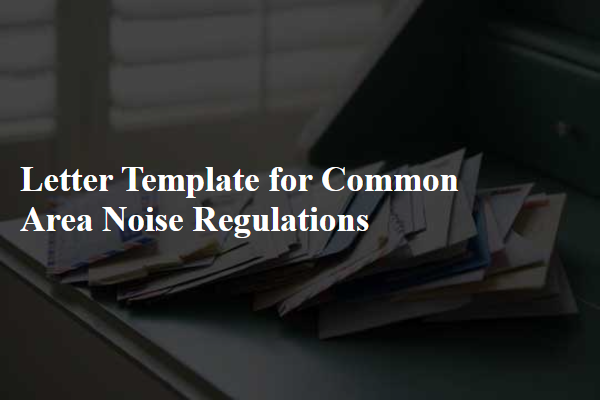
Comments